Coastal Commission tables amendment for controversial Magnolia Tank Farm project
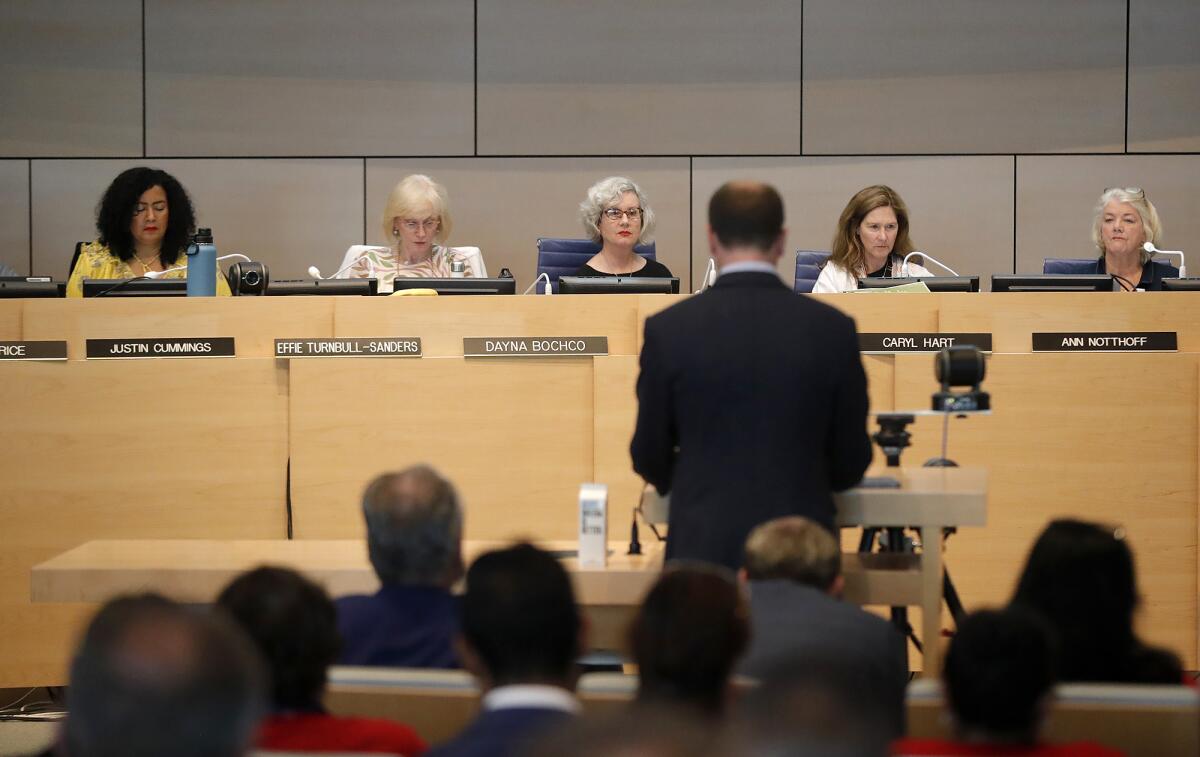
- Share via
The fate of a proposed Huntington Beach development remains up in the air as the Coastal Commission on Thursday delayed discussion of a required land use amendment for the controversial project to an unspecified date.
In January 2021, the Huntington Beach City Council approved zoning amendments to its local coastal program to allow for the construction of the Magnolia Tank Farm, where property owner Shopoff Realty Investments intends to build a mixed-use project that includes up to 250 residential units, a new hotel with market-rate and affordable rooms, and a new park and recreation facilities.
The property was acquired in 2016.
Zoning amendments would change the 29-acre site’s land use from public uses and infrastructure to residential, commercial and open space uses, but the the state Coastal Commission must approve the amendments before the development can move forward.
Developers and city officials maintain that the project sets aside land for coastal conservation, promotes ecotourism and adds much-needed housing to the city, which has been largely built out.
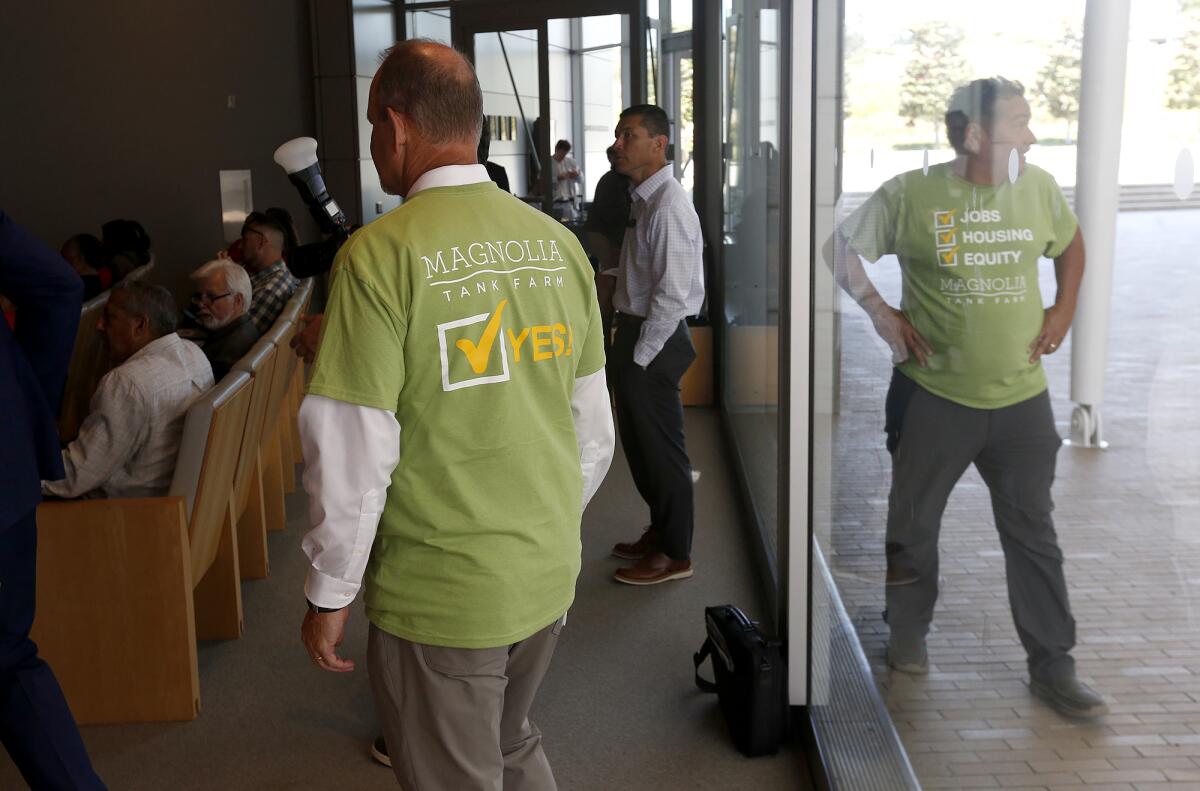
The city was tasked with zoning for at least 13,368 housing units in the next decade by the Southern California Assn. of Governments — an assignment that officials have fought every step of the way, arguing that the assessment is state overreach.
Coastal Commission staff contend that the project’s location in southeast Huntington Beach is problematic. The land is relatively low-lying, and staff argued that with sea level rise and climate change it was possible for the property to face risks of flooding, as already occurs in other parts of the city during rains or particularly high tides.
In a report, commission staff wrote, “It is unknown if the current flood control infrastructure will be able to accommodate the increased risk. Existing development in the southeast Huntington Beach area that will become vulnerable with [sea level rise] includes residential development and [the] Orange County’s regional wastewater treatment plant.”
Commission staff added, “Although both acknowledge the need, neither the county nor the city has identified any comprehensive plans to assess the specific vulnerabilities of the area’s existing flood control system and identify pathways to accommodate the expected increased hazards related to climate change.”
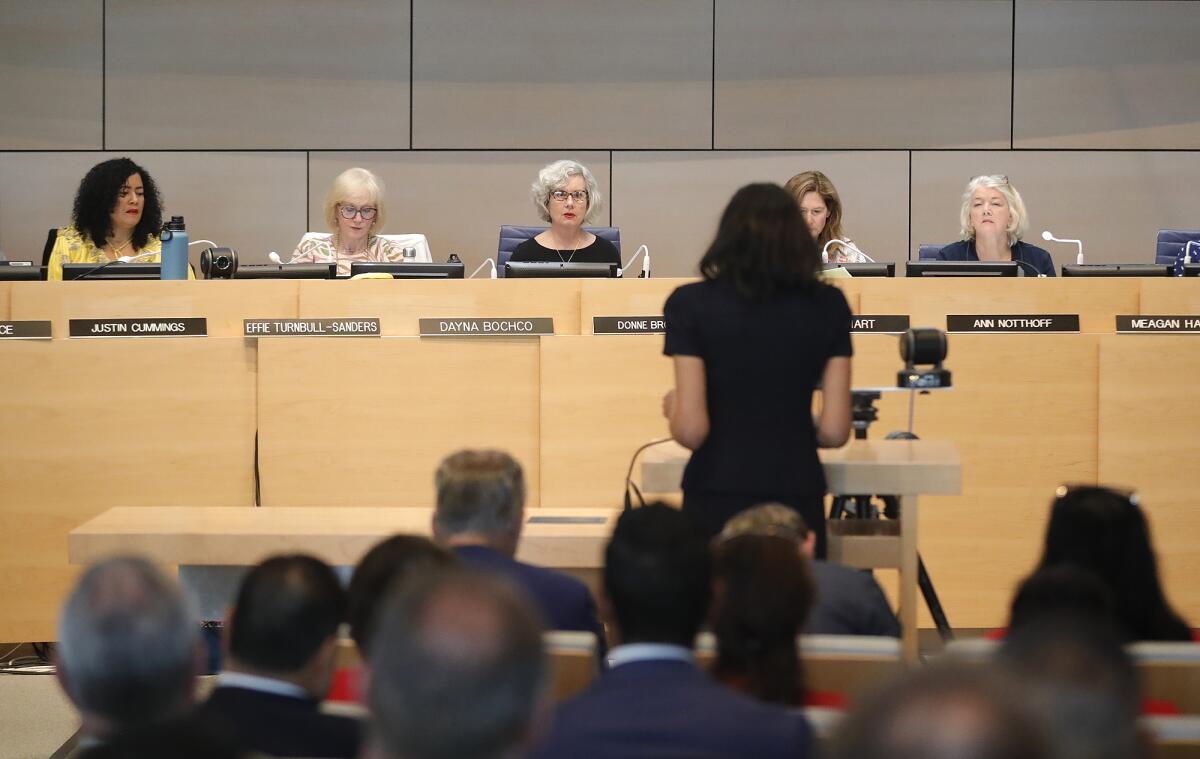
Commission staff said they saw and understood the necessity for housing but that it should be located away from coastal hazards, and staff would ultimately recommend the denial of the amendment in saying, “in the absence of comprehensive planning for addressing the impacts of anticipated coastal hazards in the city, it cannot be found consistent with the hazard policies of the Coastal Act and [Local Coastal Program].”
Representatives for Huntington Beach and Shopoff pushed back against those accusations, saying it was unfair to deny the amendment on the basis of potential flood risks that may not become an issue for decades.
Discussion on the merits of the Magnolia Tank Farm went back and forth for hours at Thursday’s hearing, with opponents to the project pointing to the same flood risks in addition to the site’s proximity to the former ASCON landfill.
Meanwhile, supporters, including members of the local union representing hotel and other hospitality workers, Unite Here 11, countered that the project would provide economic development and new living opportunities for low-income people.
Commissioners emphatically spoke in favor of affordable housing on the coast but noted they did not have enough information to comfortably decide whether or not they should approve the zoning changes.
“It would be a travesty to build low-income housing and have it flood out,” said Coastal Commission Chair Donne Brownsey.
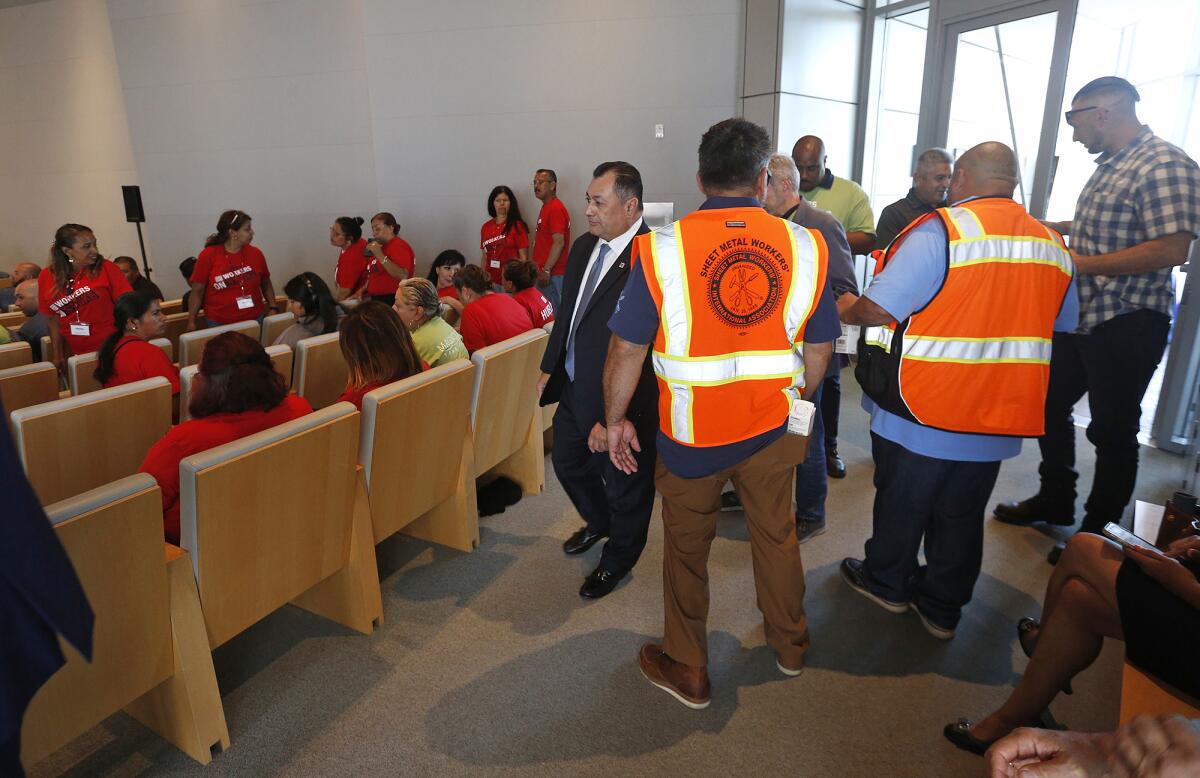
Brownsey described the lives of people who faced the floods in Northern and Central California caused by the heavy spring rains as “unalterably changed and destroyed. I don’t want people to buy a home, which is going to be all of their wealth and hopes and dreams, and then say, ‘Whoops. Yeah, we knew there was going to be flooding, but we didn’t know it was going to be that bad,’ because then it’s over for them.”
Commissioner Justin Cummings agreed.
Cummings said he is a renter himself and understands there is an inherent need for more housing, but he has seen many lives affected in the recent winter and spring rains where “houses on the beach were getting lifted off their foundations and roads were getting washed out.” He said addressing climate change was just as important as affordable housing and that ultimately the Coastal Commission was against putting people in harm’s way.
“This is not only a housing issue but a climate issue and an environmental justice issue,” Cummings said, acknowledging arguments made about the ASCON landfill to the north of the site. “If we think about where ... [low-income] communities are historically placed, they’re near sources of pollution.”
Coastal Commission staff will continue to work with the city and the applicant for the project to integrate its flooding models, reassess existing infrastructure, the impacts of groundwater inundation and adaptations that might be made to mitigate the effects of flooding both at and around southeast Huntington Beach.
“If we’re going to make a zoning change, we’re going to have confidence that whatever it’s zoned for is the right answer,” Brownsey said.
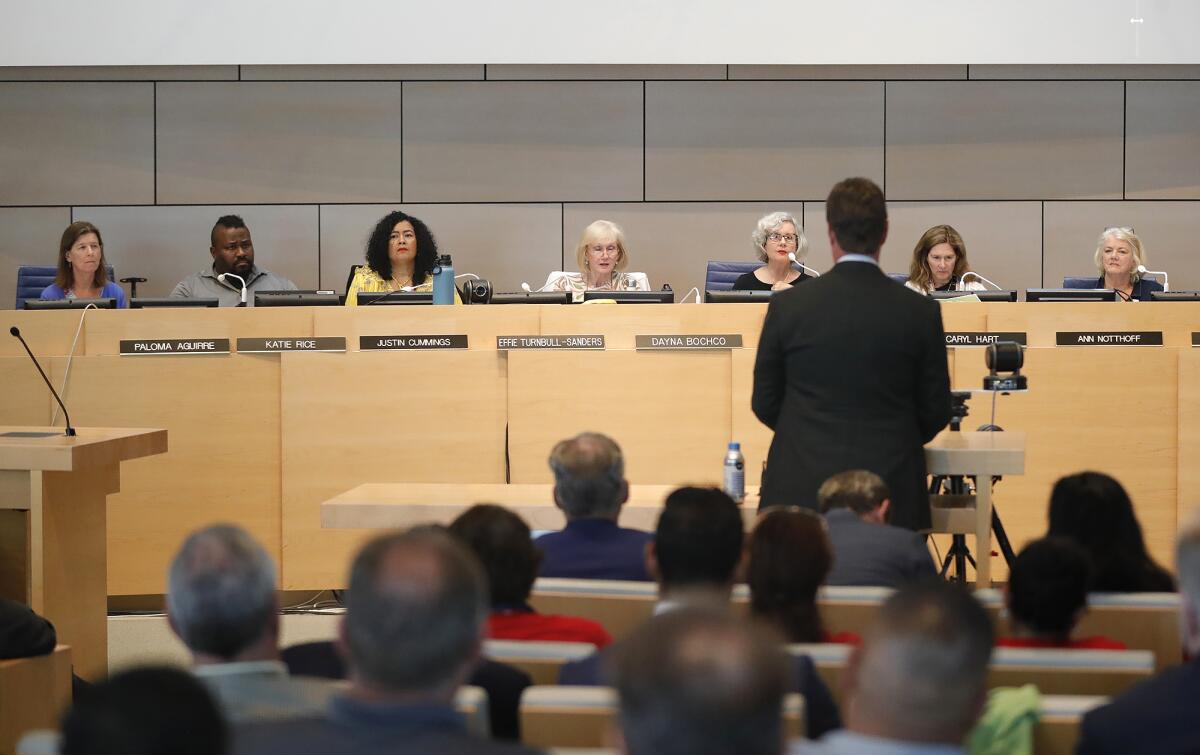
All the latest on Orange County from Orange County.
Get our free TimesOC newsletter.
You may occasionally receive promotional content from the Daily Pilot.




